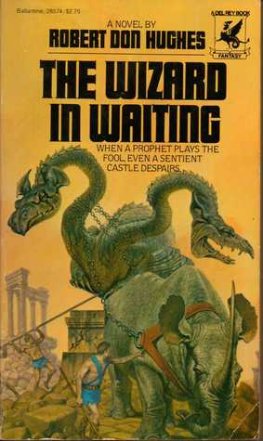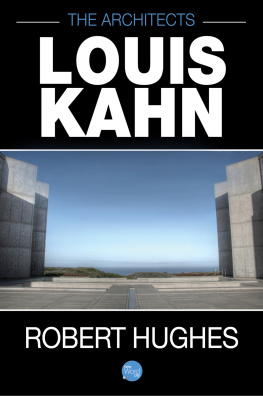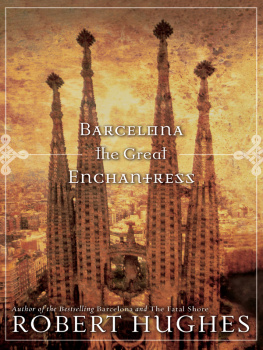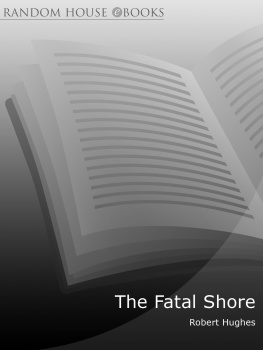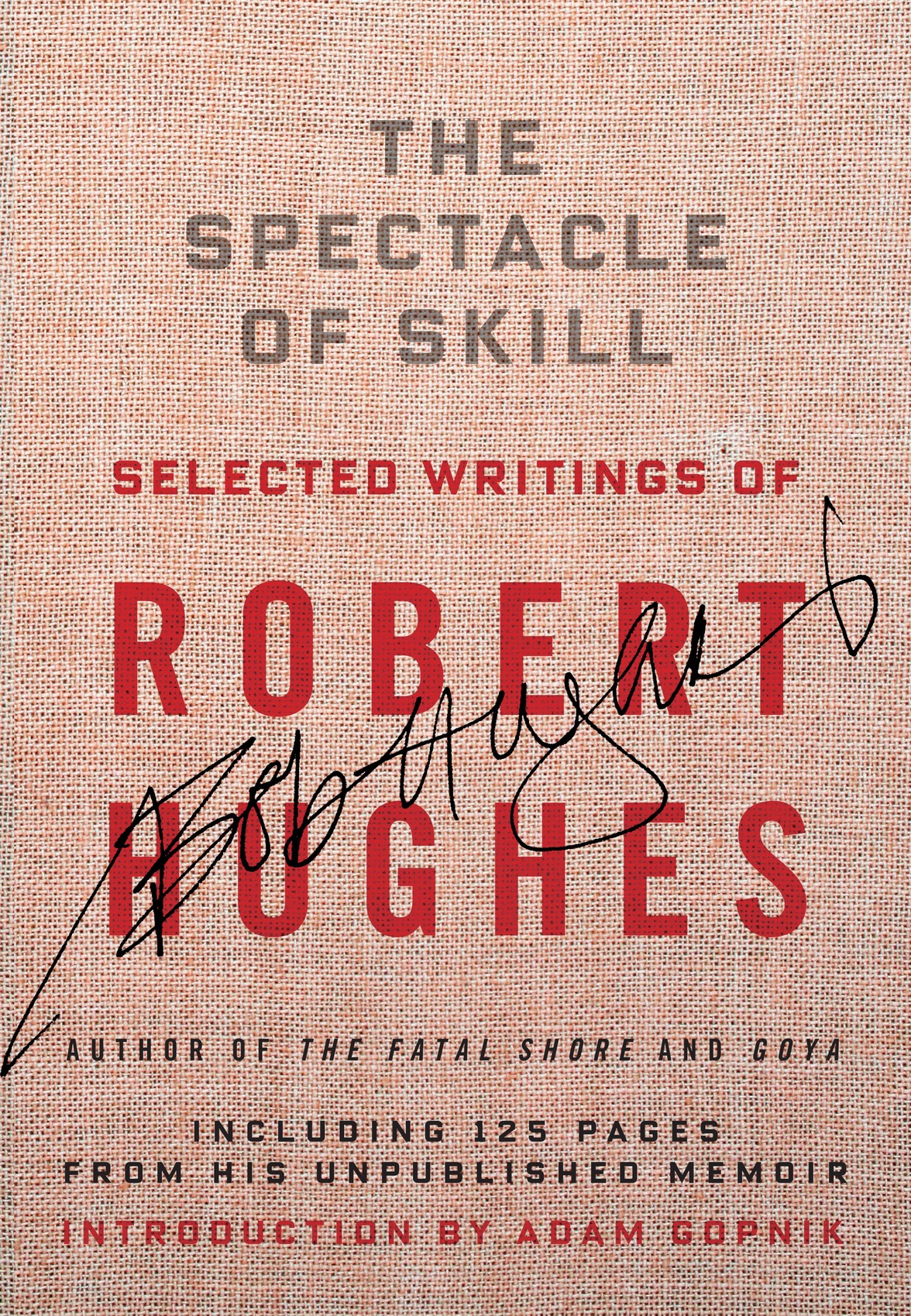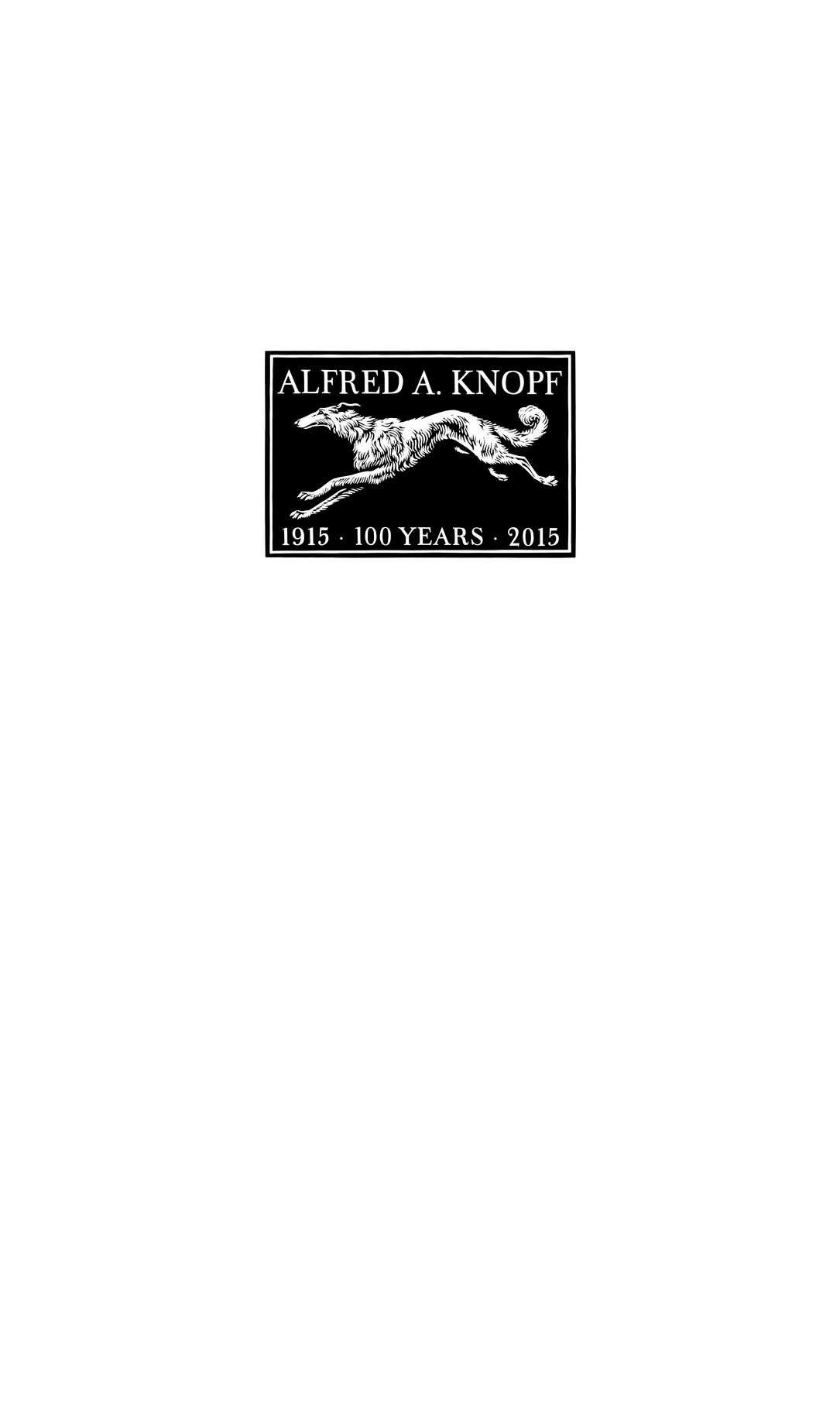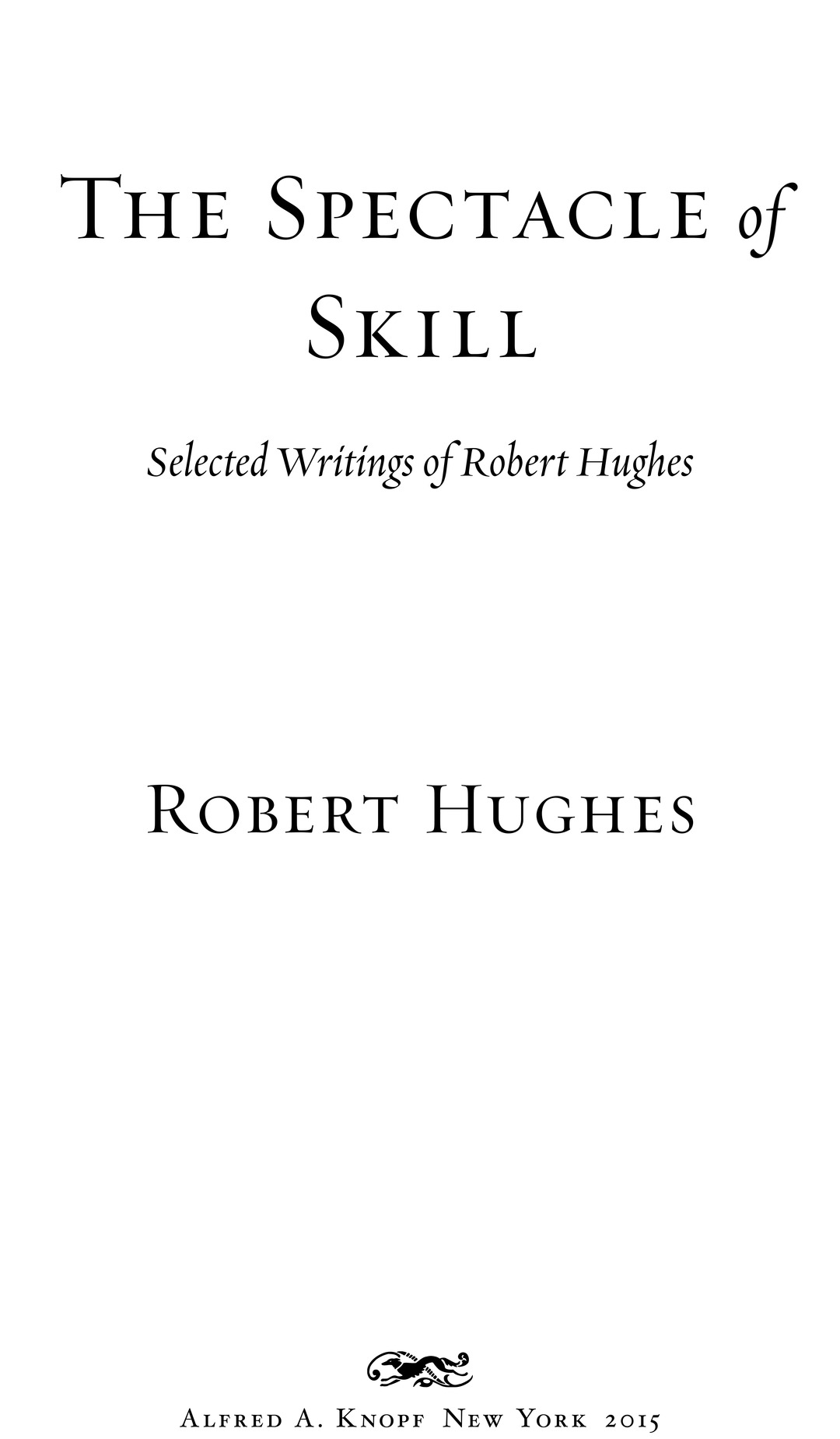PUBLISHED BY ALFRED A. KNOPF
All rights reserved. Published in the United States by Alfred A. Knopf, a division of Penguin Random House LLC, New York, and distributed in Canada by Random House of Canada, a division of Penguin Random House Ltd., Toronto.
Knopf, Borzoi Books, and the colophon are registered trademarks of Penguin Random House LLC.
I NTRODUCTION
Adam Gopnik
Robert Hughes could seem, when you first read himand even more when you first met hima man out of time. A baritone, even a basso, in a world of tenors, a master of the rounded sentence in an era of fragmentary stammersin largeness of voice and vision, he seemed out of joint with his miniaturized era. It was there in the way that his speaking voice and written voice seemed to flow together, in his love of heightened rhetoric and his hatred of the mawkishly confessional, in his habit of wit, with aphorisms offered not as an occasional effortful achievement but within a stream of everyday talkin all these ways, Hughes seemed a man more of the 1890s than of the measly self-conscious 1980s. You could imagine him bellowing at, and with, G. K. Chesterton or Hillaire Belloc, pounding a table with George Bernard Shaw, and caricatured by Max Beerbohm more easily than being portrayed by Andy Warhol. (He would certainly have preferred it!) There was nothing vaguely neo- or post- about Bob Hughes, though the art world he had to sort through was all those things. (The distance between them was part of the point, and the pleasure, of his writing.) Robert Hughes was many things, but he was never a meta-thing. He was the real thing: living and breathing and red with exertion and, sometimes, rage.
But ones delighted sense of him as a man out of time became complicated, the deeper one penetrated the character reflected in the critical and autobiographical prose collected in this book, because of an extreme vulnerability that rose from a sense of exileexile from one country into the worlds culture. Hughes was a man more out of place than time, one of those Australiansand he was always Australian as much, and with the same sense of half-resentful inevitability, of grudging unavoidable truth, as Joyce was Irishwho had lost a country and gained a civilization, who had lost a country in order to gain a civilization. The peculiarly Australian virtue of seeing the monuments of Western civilization not as exhausted dcor but as the well at the worlds end, the great good thing at the close of a pilgrimage, was always part of his consciousness.
As his Sydney University contemporary Clive James once pointed out, those born without great art near at handas Hughes recollects, there was scarcely a single important modern picture to be seen anywhere in the Australia of his youthwould make of art first a club and then a country. The legacy of European art and culture was his destination, not his inheritance; from the time of his immigration to London in 1960, and his subsequent turn to New York, he lived abroad, in every sense, with the keen appreciation and hypersensitivity to their environment that only emigrants possess. It is no accident that those great figures of the 1890s whom Hughes so in style resembled, like Wilde and Shaw and Whistler and Beerbohm, were pilgrims and outsiders too: rhetorical overcharge is one way of knocking loudly on the clubhouse door, like a high-styled hat a way of not allowing the natives to overlook the newcomer.
Indeed, in the normal course of Anglo-American things, one wonders if someone with Hughess gifts and temperament would have become an art critic at all: the in-group rules and regulations might have seemed too daunting, or, more likely, too boring, to want to take part. (His distaste for the dictatorship of Clement Greenberg over the New York art world registers in his memoir, collected here for the first time, as more bemusement than resentment. They took that guy that seriously?) He was too sensible to buy into the triumphalist art world sloganeering of midcentury American painting, and it was part of his, and our, good luck that his eye was so steady that he could still recognize that something necessary and big had happened in the art of his own time. Though fiercely critical of modernist Utopianism and the cult of the new for its own sake, he was as committed as anyone could be to the beauty of modernismto the idea that a break had happened sometime around 1908, and that from the break, however painfully caused, had poured new worlds of feeling, pleasure, sensual experience, and true witness. He knew that the act of criticizing an art that had set itself up in defiance of standards was a strange one. Nothing if Not Critical was the title he chose for the collection of his art criticisma title taken not, really, from Shakespeare, but from Iago, most duplicitous of villainsa self-mocking dig that many reviewers strangely missed. He struggled to account for his love, however critical, of modernist experiment within a framework that did not share modernist values. This book is the chart of his attempts.
The principle he landed on gives its name to this collection: skill was itself the central spectacle of artthe inner, slow passing show that would always escape mass culture. Art was the spectacle that stood still: sometimes for a lifetime in a single human mind, occasionally for centuries in the human imagination. Great modernist art, he believed, therefore depended on hands as much as headson hard-acquired skill as much as on abstract ideas. There was, Hughes insists throughout these pages, no compensating, or making up for, the absence of the artisanal excellence that seems to lie below art but actually resides beside it. Art made in the absence of craft is as empty as bullfighting in the absence of a bull; the cape is free to waggle so extravagantly exactly because it has no actual animal to negotiate, or negate.
Yet he was far too wise not to see the catch in this accountnot to know that the great revolutions of modern art had been made in defiance and often in contempt of what the old beaux-arts dispensation had accepted as skill. Van Gogh and Czanne, Matisse and Modigliani (not to mention the once conventionally virtuosic Picasso) had all been lambasted and roasted and rejected for being mere primitives, bad draftsmen, crude, wild, crazy, childish, and unskilled. In each case they had given up a high skill set as slick or worn-out or oversweet, for a broken hand. Yet for Hughes, the beauty of the broken hand was differentit was the oppositefrom the compulsions of the fashionable talent. Although Hughes came to a grudging admiration for pure virtuositythere is virtue in virtuosity, he writes of Sargent, when it protects us from the tedious spectacle of ineptitudehe believed passionately that there was also a vital difference between the ungainly gesture made in deliberate defiance of mastery and the merely awkward gestures made in its absence. The space between the Matissean awkwardness he loved and the post-Warholian nullity he despised was, he thought, enormous and objective.


